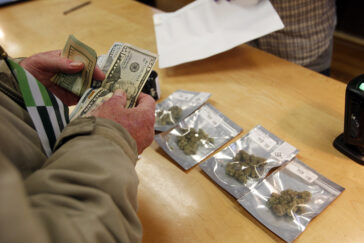Best of the States
Years of planning pay off in ‘picture perfect’ coverage of Bush funeral events
For more than a decade, Washington photo editor Jon Elswick has negotiated with the Department of Defense over coverage plans for the funeral of former President George H.W. Bush, while Houston photojournalist David Phillip fostered a relationship with the Bush family and their spokesman to secure AP’s shooting positions for the eventual funeral events.
Those relationships were crucial to arranging and executing coverage, paving the way for more than two dozen staffers to parachute into Washington, Houston and College Station, Texas, where they produced outstanding photos in real time and for the history books.
Among the highlights: Photographer Morry Gash fired a remote-controlled camera that captured a stunning bird’s-eye view of the U.S. Capitol rotunda during visitation and services, and David Phillip negotiated to shoot inside the railroad car carrying the coffin as the funeral train passed through Texas. Phillip called it “the most incredible event I have ever covered.”
The photo coverage was part of an impressive dayslong cross-format effort by scores of AP staff across the country and globe that included hours of live video and spot and breaking text, video, audio and graphics coverage that explored Bush’s life and presidency from every angle.
For exceptional planning and execution on one of the largest news events of the year, this week’s Best of the States goes to the team of photo staff covering the Bush funeral.











